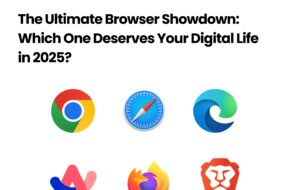
Source: Forbes
From bloggers and vloggers to podcasters and social media influencers, content creators are shaping the narratives that define our cultural landscape. However, there is a big question emerging – how will AI impact social media content creators?
I see AI as both a threat, and a powerful collaborator. This article delves into the ways AI is reshaping the role of a content creator, detailing its influence on various aspects of production, based on my own experience leading a company investing in social media creators.
Stay well-informed and be the very first to receive all the most recent updates directly in your email! Tap here to join now for free!
Using AI to automate routine content creation tasks
One of the biggest impacts of AI is its ability to automate routine tasks that consume valuable time and resources for creators. AI-powered tools can already streamline processes such as research, data analysis, and content production, allowing creators to focus their energy on more creative endeavors. From generating topic ideas to conducting keyword research and optimizing SEO, tools such as ChatGPT enable creators to work smarter, not harder, enhancing efficiency and productivity.
Using AI to produce new content
The advent of AI-driven content creation tools has democratized the content production process, making it more accessible and cost-effective for creators of all backgrounds. From image production using Midjourney, to voice reproduction using ElevenLabs, to video repurposing using Opus Clip, to languge dubbing using Papercup, AI-powered tools automate labor-intensive tasks and empower creators to produce a larger volume of high-quality content in less time.
Using AI to create new ideas
Whether it’s generating music compositions, designing digital artwork, or writing compelling narratives, AI tools can cure writers block and inspire creators to think outside the box. By analyzing vast amounts of data on trending topics, audience preferences, and successful content formats, our creators are using AI to suggest new content ideas that align with current trends and have high engagement potential.
However, this convergence of art and technology also raises concerns about authenticity and originality. For example, while AI-generated artwork may be visually stunning, critics question whether it possesses the soul and emotional resonance that characterize human-created art. The debate over the value and legitimacy of AI-generated art underscores the broader societal discourse surrounding the role of technology in shaping cultural production and identity.
Using AI to optimize content performance
AI algorithms excel at analyzing vast datasets and extracting actionable insights that inform content optimization strategies. From A/B testing headlines to predicting virality and audience sentiment analysis, AI-powered analytics such as YouTube’s new A/B thumbnail testing tool provide creators with feedback on the performance of their content in real-time. By leveraging these insights, creators are fine-tuning their content strategies and refining their messages.
Competition from virtual influencers
The emergence of virtual influencers poses a unique challenge to traditional content creators. While they may seem like a novelty, virtual influencers, such as Lil Miquela and Shudu Gram, have amassed millions of followers across various social media platforms.
For content creators, the rise of virtual influencers presents a multifaceted threat to their livelihoods and influence, most notably with brands increasingly turning to them for influencer marketing campaigns. However by sharing genuine experiences, and engaging with their audience authentically creators should build trust and credibility with their audience, distinguishing themselves from virtual counterparts.
The Ethical and Societal Implications of AI in Content Creation
While the rise of AI in content creation offers unprecedented opportunities for content creators, it also raises ethical and societal concerns that cannot be ignored. Issues such as algorithmic bias, data privacy, and intellectual property rights require careful consideration to ensure that AI technologies are deployed responsibly and ethically.
Creators must be vigilant in safeguarding the integrity of their content and upholding ethical standards in their creative practices, even as they embrace AI-driven tools and platforms.
As we navigate this transformative era, it’s going to be fascinating to see how the coexistence of AI and human creativity will shape the future of content creation. My view is that AI will not replace content creators. Instead, leading content creators will use it as a powerful collaborator, automating tasks, fueling creativity, and providing data-driven insights.
Stay well-informed and be the very first to receive all the most recent updates directly in your email! Tap here to join now for free!
Source: Forbes





